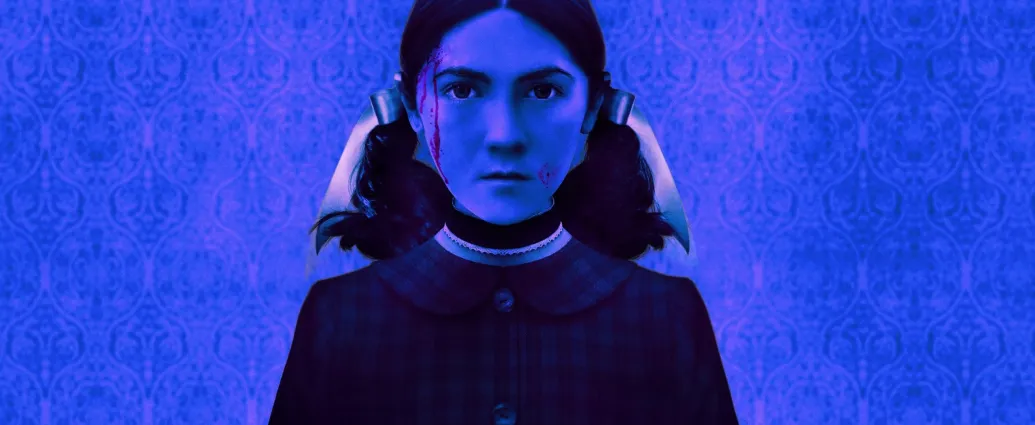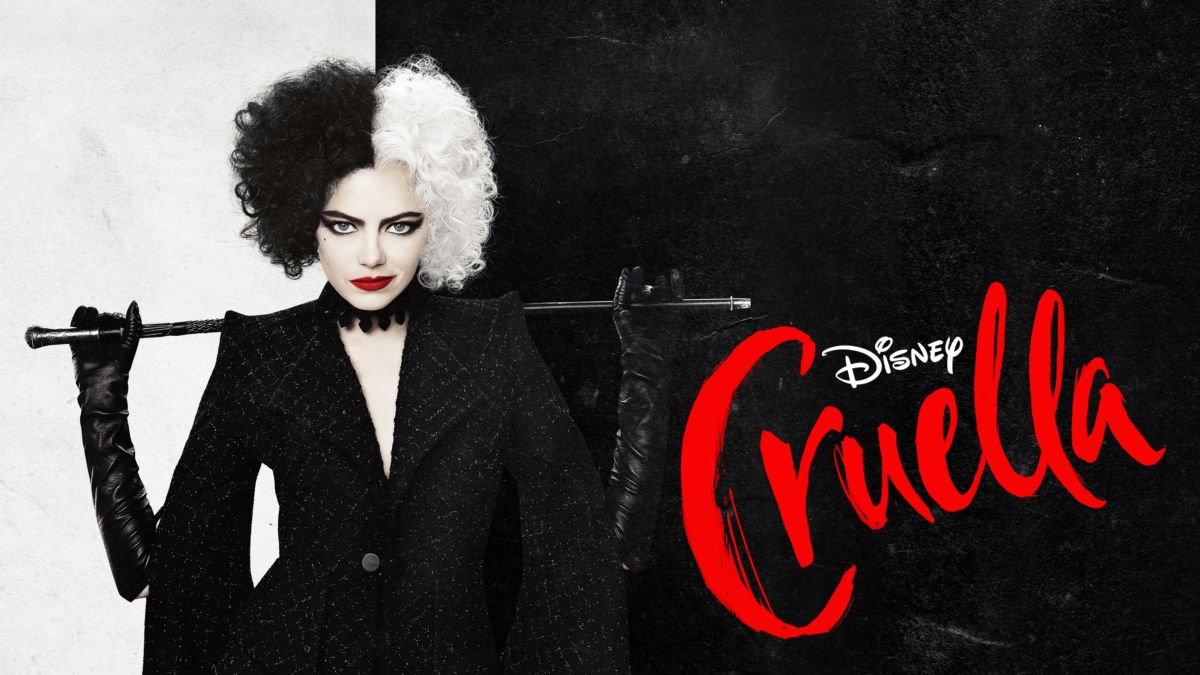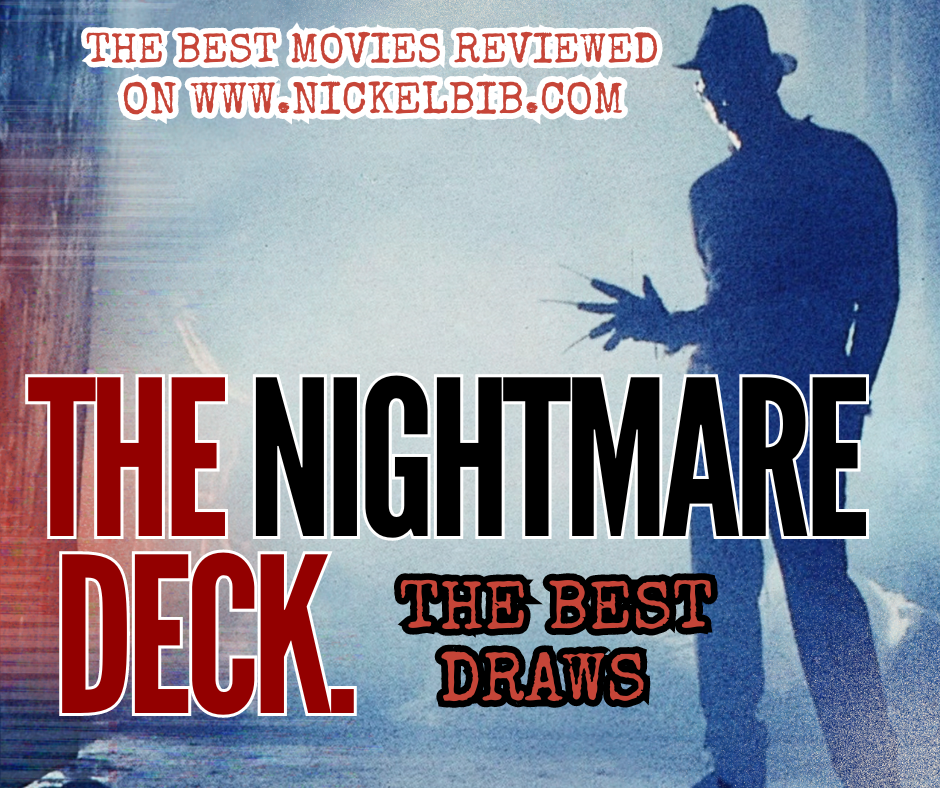I cautiously placed 2024’s They Turned Us Into Killers on the docket for a review on The ‘Bib. As I say ad nauseam by now, I try to never go into a review in bad faith. If I have anything more than a sneaking suspicion that I won’t enjoy a film, generally speaking, I won’t review a film. It is the very reason that you won’t find reviews of The Room or Sharknado among the films I have touched on.
I want to make it clear that I watched this film in earnest, but that I came away with a lot of criticisms about it.
Writer and director Thomas Walton is at the helm for this horror feature, with prior fare includes Camp Pleasant Lake and Room 9 (which is another film with the involvement of Scout Taylor-Compton). More so than the director, I was interested in this film because of Scout’s involvement (as I believe she delivered a solid performance in Rob Zombie’s Halloween movies and, in a similar way as I feel about Danielle Harris, I am always rooting for her to find new success in the horror genre). I was also interested in Taryn Manning’s involvement (who I have seen in more things than I can count, my favorite performance of hers being her turn in Orange is the New Black).
The premise of They Turned Us Into Killers seems straightforward enough on paper. After a woman is driven to suicide by an abusive boyfriend, her friend, played by Taylor-Compton, goes full vigilante and decides to seek out her own form of justice.
Unfortunately, what seems straightforward on paper doesn’t play out that way in practice. This is a reoccurring theme I had with this film. Where do I begin? As straightforward of a concept as it should have been, the narrative’s ambition unfortunately extends beyond its own grasp, making for what truly amounts to a mess of a film. The film is so bogged down by its own excesses and unnecessary complexities that it honestly made me not want to write a review of the film because I felt like I was punching down on it.
Ultimately, I went into this film anticipating a sort of “I Spit On Your Grave”, “Straw Dogs”, “The Last House on The Left”, or “Hard Candy” style film. If you boil it down to the basic essentials, I would suppose there was some truth to that assessment. The film depicts someone avenging a victim of sexual assault. Say what you will about any of those films, but, for the most part, they are mostly straightforward and easy to follow along with.
There is an argument to be made that one or more of those films I mentioned may celebrate the subject-matter they’re depicting in a distasteful manner (a disservice that, to this film’s credit, I feel They Turned Us Into Killers doesn’t commit), but they all have a fundamental understanding of storytelling and, for the most part, don’t overstep their boundaries on a narrative level. They’re simple and easy to follow along with and aren’t busy or over-encumbered.
This film, if I had to describe it, is just as much the depiction of a person seeking out vengeance as it is an origin story for vigilantes, overwrought by a shifting, disheveled timeline. For lack of a more apt description, it feels like we spilled some Memento in my grind-house exploitation film.
The acting is rough throughout the film. Both Taylor-Compton and Manning are capable actors, but even they aren’t exempt from the film’s hammy dialogue and melodrama (although, by default, Manning is more exempt, simply because of how little she is in it and her portrayal as a straightman character, not a protagonist).
Within the first ten minutes of the film, Scout’s character sings “They turned us into Killers”, an absurdly goofy moment that, unfortunately, happens several times throughout the film. It is a cliched occurrence that you can almost, kind of see the logic behind if you squint a little. It calls to mind the nursery rhymes from A Nightmare on Elm Street or “Beware the stare of Mary Shaw” from Dead Silence, the only difference is that in both those instances, the idea is that it is a legend that has immortalized itself on playgrounds and in social circles, this is just a woman weirdly singing a nursery rhyme she seems to have made for herself. “They turned us into killers, we’re the Millers!” It feels like something out of a comic book that simply doesn’t translate very well on screen. In fact, I think that is a major takeaway I had for this film is that it feels like it would have worked better in a different medium, but that it wasn’t given the proper treatment to be made into a film.
Certain things feel like they worked better in theory than they did in execution. For example, a character writing their suicide note while their voice narratives the letter in the background is a familiar trope we see often. What makes it jarring and more than a little campy in this film is that the person can actually be seen reading the note aloud to herself as she writes it as though she is performing for a crowd that isn’t there.
I don’t want to harp too much on the film, but it has a script that I believe should have received a second, third, and fourth draft before a single shot was filmed. The dialogue is contrived, filled to the brim with unnatural, inorganic exposition. You see, Scout’s character isn’t acting alone in her vigilantism. There is another character helping her as well. During one scene, her accomplice stands on the porch with his deeply conflicted father, and recounts his own actions and quest for revenge, filling in the blanks and cluing us in on details unbeknownst to us (but not unbeknownst to the people who are talking). It is a film that knows where it wants to end up and knows a couple of the letters in between, but doesn’t properly know how to get from Point A to Point Z in a way that works.
There isn’t much credit to give for They Turned Us Into Killers. I can only hope everyone involved moves onto better things and, hopefully, treats this project as a learning experience.





